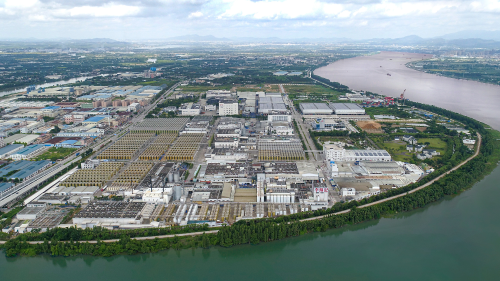Government incentives spur Thailand’s EV market
Policies help reduce electric vehicle costs.
Thailand is emerging as a leader in the electric vehicle (EV) sector within Southeast Asia, capturing 79% of the region's total EV sales last year. This surge is primarily driven by a combination of government initiatives and technological advancements, which together are reshaping consumer preferences and setting the stage for a robust EV market.
Kajornkiat Kiatsunthorn, Research Director at Kadence International (Thailand), attributed this growth to several key factors. "There's a rising consumer demand driven by escalating gasoline prices and increased environmental awareness," he explained.
The Thai government has been instrumental in this growth through various incentives aimed at making EVs more affordable and attractive. "The government has introduced subsidised consumer tax breaks and exemptions on export duty, which significantly reduce the initial costs of purchasing an EV," Kiatsunthorn stated.
These policies not only make EVs more competitive compared to traditional gasoline-powered vehicles but also encourage more consumers to consider EVs as a viable option.
One of the most impactful government strategies has been the establishment of a free trade area between Thailand and China. This arrangement facilitates the entry of EV brands manufactured in China, such as Tesla, into the Thai market, further enhancing the availability and variety of EVs for consumers.
Technological advancements have also played a crucial role in transforming the EV landscape in Thailand. Initially perceived as merely city cars due to concerns about driving range, today's EVs boast improved battery capacity and efficiency. "The current technology allows EVs to drive longer ranges, making them more practical for everyday use and increasingly attractive to Thai drivers," noted Kiatsunthorn.
Further adding to their appeal, advancements in charging technology have led to faster charging times, addressing one of the major barriers for consumers, particularly those without access to home charging facilities, like condominium residents.
Moreover, EVs are gaining traction not only among eco-conscious consumers but also among those interested in performance. "Modern EVs can rival supercars in performance but at a fraction of the cost, offering quicker acceleration and improved handling, making them exciting and fun to drive," he added.
Lastly, technological improvements have also led to reduced production costs, making EVs a more budget-friendly option for the average Thai consumer. This price reduction is crucial in a market where cost is often a significant barrier to entry.













